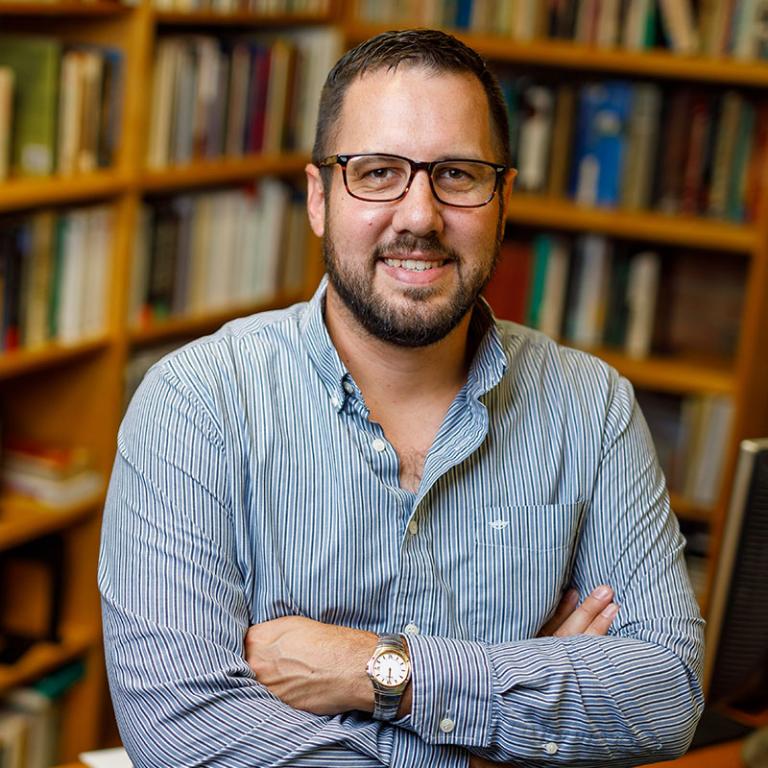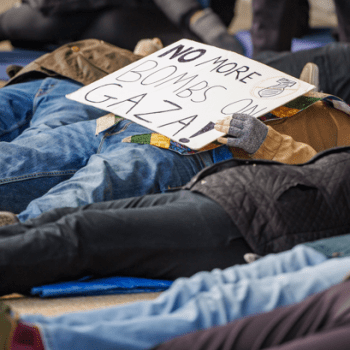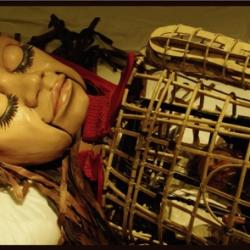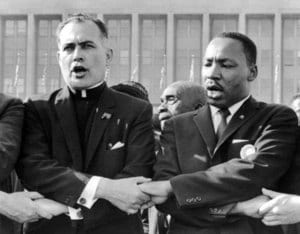On Wednesday, February 12, Potawatomi author, poet, and storyteller Kaitlin Curtice spoke in chapel at my alma mater Baylor University about her journey of decolonizing her Christian faith, inviting students into their own journey of decolonization. During the first of three chapels, a student interrupted Curtice mid-address by shouting, “No one even thinks like that!” in response to Curtice’s statement that “in the church today, women are not seen as equal to men.” A Baylor-sanctioned student group that describes itself as “dedicated to the founding principles of American exceptionalism, Christian ethics, & Baylor heritage” then publicly disavowed the chapel service and called on the university to publicly apologize to constituents for inviting Curtice to speak in chapel. They then went to the local media who reported on the “controversy” of Curtice reportedly using feminine language for the divine in her prayer. This is not the first time a BIWOC (Black/Indigenous/Woman of Color) chapel speaker has been interrupted and harassed at Baylor. And yet the institution is yet to issue a public apology to Curtice for how she was treated during her visit. As a graduate of Baylor, I offer my own public apology below.
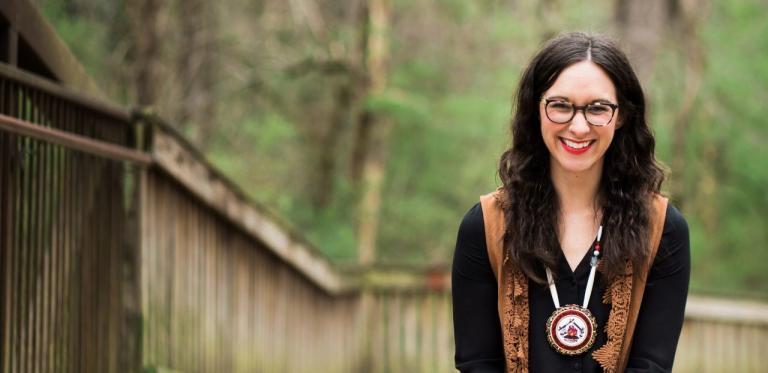
Dear Kaitlin,
In my office hangs a diploma from Baylor University with my name on it. The degree I received there gives me all the power, privileges, and benefits that come with holding a doctorate from Baylor. With it, I have access to positions and spaces within academia and the church that I wouldn’t otherwise have.
In exchange, I carry with me the name of Baylor wherever I go and in whatever I do. By Baylor conferring on me a degree and I accepting it, Baylor and I are forever inseparable. I am now forever a member of what Baylor athletics refers to as “Baylor Nation.”
Being a member of Baylor Nation means that I am partly responsible for what happens at Baylor. And as a member of Baylor Nation, I am deeply sorry for what happened to you last week at your invited address at Baylor chapel.
You came to Baylor with a message of peace. You would have been well within your rights to denounce Baylor for our history—including our quite recent history—of racism, white supremacy, sexual violence, and homophobia. Instead, you shared about your own journey of discovery and healing—of, in your terminology, “decolonizing.” Even as a Potawatomi woman, you confessed, “I wouldn’t dare call myself decolonized when there’s still so much decolonizing to do.” You acknowledged your own “white privilege” as a “mixed European and Potawatomi woman.” And you admitted that you participate in the very systems of oppression that you are learning to question. Throughout your talk, you spoke not of “me versus you” but of “we,” inviting students into their own journey of discovery, healing, and liberation alongside you. You refused to vilify individuals but spoke instead against dehumanizing and oppressive systems. Quoting your friend Rachel Held Evans, you spoke out of “deep love” for your community.
In response, a student chose to heckle you during your talk. Instead of apologizing to you publicly before your subsequent chapel addresses, the chapel director (no doubt well intentioned) introduced you with a trigger warning to students, comparing your talk to a previous chapel talk by an Air Force chaplain and lieutenant colonel and inviting students to walk out of your talk and speak to chapel staff if they were uncomfortable with your message. (Did he give a similar trigger warning before the white male lieutenant colonel’s address?)
When a student group immediately vilified you as “a speaker with pagan sympathies,” the Baylor president issued a statement not defending you or apologizing to you for the treatment you were receiving during and following your visit. No, her statement distanced Baylor from you, stating, “Every Chapel speaker works with us ahead of time on what message they will be sharing, but on occasion, a speaker may veer away from our understanding of the message they planned to convey.” (What part of your message veered away from their prior understanding of what you planned to convey? What was their understanding of what you planned to convey?)
In a sense, the president’s message to concerned students and their parents was more authentic than a quick apology to you would have been. While there are many good people at Baylor—many of whom you likely met during your visit—as an institution Baylor is still deeply invested in the colonizing systems and logics that you came to help us dismantle. Despite the traditional Baptist emphasis on separation of church and state, the “Christian heritage” at Baylor is still enmeshed with whiteness, nationalism, patriarchy, and colonialism.
While all speech is inherently political, it is disheartening to see your gentle invitation to join you in wrestling with our shared cultural heritage dismissively characterized as part of a “liberal agenda” instead of as what it is: proclamation of the gospel. As my friend and colleague Malinda Elizabeth Berry writes, the Doctrine of Discovery that allowed colonial powers to seize Indigenous land with impunity is the “originating sin” of the United States of America. It has so infected the consciousness of white Western Christians that many of us reflexively consider the idea of Indigenous Christianity to be inherently syncretistic. But by inviting us to decolonize our faith, you help us to see how our own colonialist conception of Christianity is what’s syncretistic, as our faith has blended with American exceptionalism, nationalism, capitalism, militarism, and patriarchy until questioning any of the latter is taken as an affront to the former. Decolonizing is thus another name for what Jesus calls repentance—turning away from systems of violence and empire in order to embrace the nonviolent kingdom of heaven as those with pure hearts who seek after the righteousness and justice of God.
I am writing this from my home in South Bend, Indiana, along the St. Joseph River. As you described in your chapel address, the land on which my home now stands is land of the Potawatomi Nation who, in 1838, were forcibly removed from it by the US government. As historian Rich Meyer describes, around 800 Potawatomi were marched at gunpoint by US soldiers to Kansas on what became known as the Trail of Death. It is called the Trail of Death because, during this forced emigration in the chilly months of September and November, an estimated 60 of the 800 Potawatomi—most of them elderly or children—died. Those who survived were left homeless and landless, and many of them moved south to Oklahoma where you were later born.
To my Baylor family, I ask: Is there something particularly “controversial” or “partisan” or “divisive” about remembering this history, these deaths? If so, then what does that say about our allegiances? Might the Spirit be calling us, through the voice of our sister Kaitlin, to repent of our complicity in systems of death so that we may instead choose life that we and our neighbors and our children and all God’s creation might live?
Kaitlin, I cannot take back what my ancestors did to yours. Nor can I take back what my university did to you. But, humbled by your invitation to join you in decolonizing our shared faith, I repent. I repent of my own silent complicity in the harms done to you and your people and of the ways that, even today, I benefit from the displacement of your ancestors from the land on which I now call home. And I repent further of my own silent complicity in an educational system that values “civil discourse” over truth and justice.
I pray the day will come soon when my alma mater‘s administration will join me not just in apology but also in repentance so that justice might roll down like a mighty flood and righteousness like an ever-flowing stream.
Shalom,

David Cramer, PhD 2016 (religion), Baylor University
Watch Curtice’s February 12 Baylor chapel address below.

